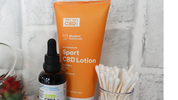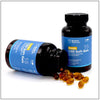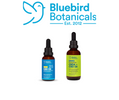What Are Adaptogens?

Adaptogens are a category of non-toxic herbs that support a healthy stress response.† They offer holistic support to the immune, digestive, cardiovascular, musculoskeletal, nervous, and endocrine systems. Although the term “adaptogen” wasn’t coined until 1947 by Dr. Nicolai V. Lazarev, adaptogenic herbs have actually been used for centuries in Chinese and Ayurvedic healing traditions.
In 1998, the American Food and Drug Administration (FDA) defined an adaptogen as a new kind of metabolic regulator that has been shown to help in environmental adaptation. According to scientists Dr. Israel Brekhman and Igor Dardymov, there are three specific qualities that make an herb a true adaptogen:
- The substance must be non-toxic to the recipient at normal servings.
- It must have non-specific activity and act by increasing resistance of the recipient to environmental factors.
- It must help regulate or normalize organ and system function within an organism.
The stress-protective activity of adaptogens is associated with the regulation of homeostasis via several mechanisms of action. The adaptogen is thought to interact with the body’s hypothalamic-pituitary-adrenal (HPA) axis and the sympathoadrenal system, both of which are involved in managing the body’s reaction to stress. Basically, the role of adaptogens is not to prevent the effects of stress, but rather to train your body to respond more efficiently.
But what’s actually considered stress? Stress is any physical, biological, or chemical factor that adversely affects cellular physiology, growth, or survival. It’s a reaction mechanism that’s designed to keep you alive, and it responds in equal measure to emotional, mental, and physical stress. Over time, it becomes even more critical to support a healthy stress response with a combination of nutritional, lifestyle, and herbal practices.
Related Article: The Best Anti-Anxiety Workouts (For All Ages)
That’s where adaptogens come in. They help support a healthy response to mild and occasional stress, alongside healthy cortisol levels, balanced mood and emotional well-being, mental stamina and focus, and healthy energy levels.†
Which herbs are adaptogens?
The exact number of known adaptogenic herbs is still in flux. To date, only about 10-15 adaptogenic herbs have been researched.
- Ashwagandha (Withania somnifera)
- Rhodiola (Rhodiola rosea)
- Holy basil/Tulsi (Ocimum tenuiflorum)
- Shilajit (Asphaltum bitumen)
- Reishi (Ganoderma lingzhi)
- Asian ginseng (Panax ginseng)
- American ginseng (Panax quinquefolius)
- Cordyceps (Cordyceps sinensis)
- Schisandra (Schisandra chinensis)
- Eleuthero (Eleutherococcus senticosus)
How to add adaptogens to your diet
You can buy adaptogens at many natural grocery stores, health and wellness retailers, and independent herbal practitioners. Adaptogens can be taken in many forms, but are most commonly used as herbal teas or capsules. While the adaptogenic herbs on the market have been studied and deemed non-toxic, it’s important to always consult your doctor prior to adding new products to your routine or changing your diet.









